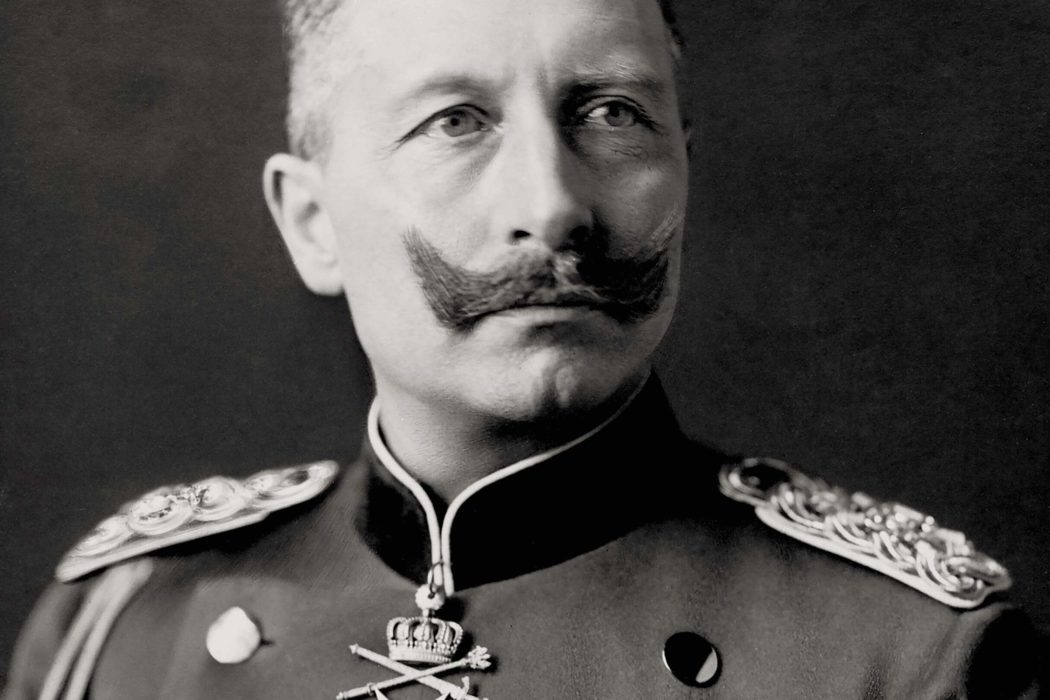“THERE IS NO BALANCE of power in Europe but me.” So said Kaiser Wilhelm II, Emperor of Germany and King of Prussia, in 1901.
Nationalism dominated the mood in Europe in the decades leading up to the First World War. Nowhere was this stronger than in Germany. Within two years of ascending the throne, Kaiser Wilhelm had dismissed his Chancellor, Otto von Bismarck, and begun to rule as an autocratic monarch. The entire continent of Europe would, he asserted, soon revolve around him.
At Grey Towers, Gifford Pinchot’s estate in Milford, Pennsylvania, on June 3, 1912, ‘Abdu’l-Bahá had argued that justice could not be served by governing vast regions from a single center. “Each of the colonial countries serves to adorn one great capital,” he said. But “Tremendous changes will take place in Europe. The great centralized powers will break up into smaller independent states.” In short, ‘Abdu’l-Bahá told the Americans, “Europe will be forced to follow your system.”
It would take the Great War to achieve it.
In Russia, Czar Nicholas II had another idea. He would secure the glory of his nation by declaring peace. On August 29, 1898, he surprised everyone by calling for a conference to discuss arms limitations. “The Czar with an olive branch,” commented one newspaper, “that’s something new.”

The peace movement found the prospect thrilling. But leaders in Europe met the Czar’s call with suspicion. Surely it was nothing more than a pre-emptive move by a cunning strategist, whose nation’s military prowess had fallen behind his European rivals.
The Kaiser was outraged at the notion that his state would submit to peace or arbitration. According to Wilhelm, military might was the state. His arguments sounded a lot like those ‘Abdu’l-Bahá had encountered in his meeting with Hudson Maxim, the arms dealer, in New York on April 15: war is ennobling to the race; conflict ensures a robust civilization; peace is stagnant, even decadent.
The Czar’s conference opened on May 18, 1899, at the Hague in the Netherlands. It fell more than a little bit short of global peace. But it did create a permanent international court of arbitration, and banned bombing from the air, chemical warfare, and hollow-point bullets.
‘Abdu’l-Bahá thought America had to be the driving force behind such an initiative, but getting involved in world affairs ran counter to the young nation’s instincts. President James Monroe, in his Monroe Doctrine of 1823, had declared that America would neither interfere with existing European colonies nor meddle in the internal concerns of European countries. He merely demanded that European nations stop extending their colonies in the Americas. In 1904, when President Theodore Roosevelt asserted the right of the United States to intervene in Latin America and beyond, he worried many Americans.
Unlike the nations of Europe, ‘Abdu’l-Bahá argued, America could rise above accusations of self-interest. “Your government has, strictly speaking, no colonies to protect,” he said. “It is my hope that inasmuch as the standard of international peace must be upraised it may be upraised upon this continent, for this nation is more deserving and has greater capacity for such an initial step than any other. The other countries await this summons.”






